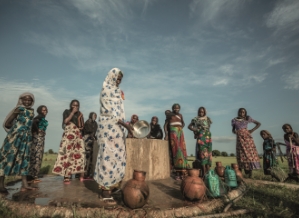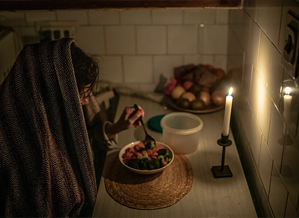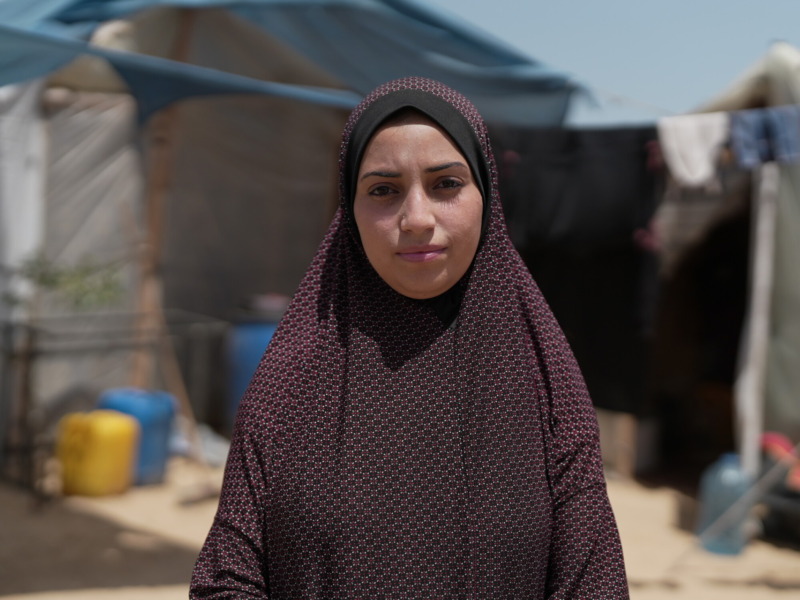Floodings in Bosnia and Herzegovina, reports from Bijeljina
A witness, one of our staff in Bosnia and Herzegovina, reports the situation from Bijeljina region, in the North East of BiH.
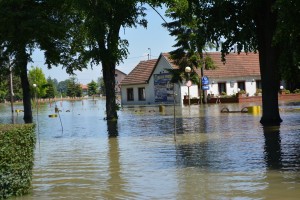
We were in Bijeljina today, an area deeply affected by the flooding. Here, around 7.000 houses were flooded up to the roof, while 1.500 people have been accommodated in temporary shelters, mostly local schools, which are now closed for ordinary classes. Around 10.000 more people have found a place to stay with friends and family. The flooding have been a great damage for both farmers and producers, and its effects will be devastating for the local economy in the long term.
There are around 1.000 dead large livestock – cows, sheep – and some of them are literally floating around, which can be source of possible infections and water pollution. Thousands of square kilometres of good and fertile soil have been taken away by the water, or have been completely wiped out by the sand brought by the water. All the crops are damaged, while those remaining are not edible, since they have been contaminated by infected water. The crops that were ready to pick, like potatoes, are now rotting. There is nothing to be eaten, and the biggest worry is now the very survival of the people until the next planting season: such floods could not have picked the worst time. This is the most fertile part of the country, called Semberija, known as „feeding fields“ for the rest of the country. Many people took up loans to buy seeds and mechanic tools: now that their crops are gone, just the debt remains. They are desperate, and have been left with nothing at all. There has not been no support from the State yet; all aid is coming via from NGOs and self-initiated citizens’ actions.
The water has drawn back at certain parts, leaving behind damp, high risk of infection, debris and huge quantities of mud everywhere, especially inside homes. All the furniture is destroyed, and people can not sleep inside. It will not be possible to return home if not for some months, as drying takes a lot of time and there is high risk of infection from damp walls.
In the Bijeljna area, there is now running water, but it is recommended to boil it before drinking; there is therefore the need to get filters and jerry tanks.
Along the road and fields, as we moved on, we found harvesters and tractors, and many stray livestock, collected here while people were trying to save them from the water.
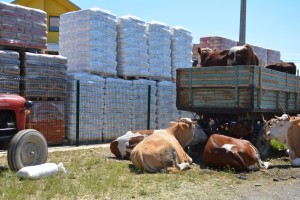
At village Balatun the atmosphere is that of the end of the world, as the road disappears under the water and the only way forward is by boat, while the border police would not let us on the boat.
This is the area where people live of agriculture, so this is an utter disaster for them: 90% of their work and investments have been destroyed. They now fear the next winter, as not much food will be available. There are immediate needs which Oxfam is trying to tackle: Food for babies (formula), diapers for babies and elderly, hygiene kits, both for adults and babies, and anything to disinfect the houses, the equipment and the people. Mostly needed are water purification tablets, but also dryers for houses (not heaters), mattresses, long life food, ready to use, seeding material and fertilizers.
Livestock food presents another huge problem, since all the hay stacks and livestock food reserves are destroyed and what is left is not usable, as damp it is dangerous for diseases.
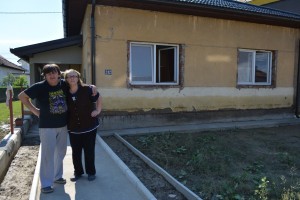
Nijaz Hodzic and his wife Indira just managed to renew their house few months ago, making and buying all new; now the floor and the furniture have gone, and they are forced to live in the loft until the house dries. He say that the flooding came during the night, he woke up to go to the toilet and stepped horrified in the water, which was rising constantly. They had no time to save anything, but their lives. They climbed up in the loft, electricity gone, alone in the dark, did not know what was happening, being scared for their lives, that the water will rise up to the roof, and there was no help coming. They survived, but the water remained there for three days, and as soon as they could enter the house they started cleaning and drying.
